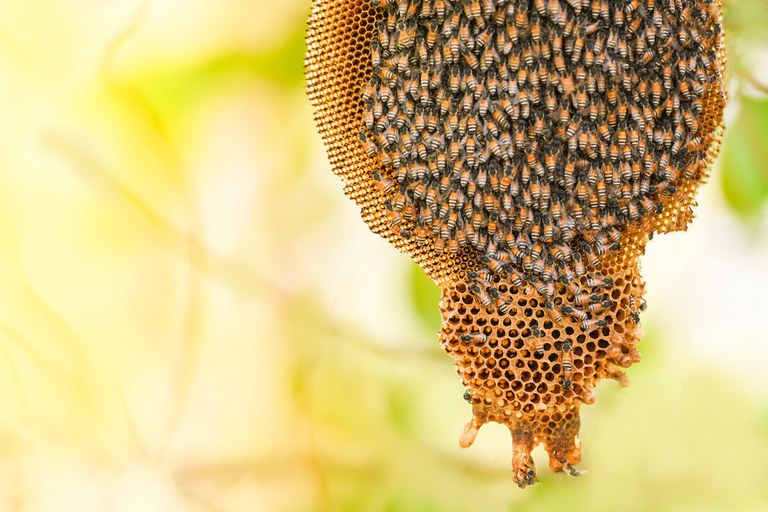Improving the health of honey bees through the discovery of genetic traits for disease tolerance.
Problem
How can disease and decline of domesticated honey bee colonies be prevented?
- Selection associated with domestication of honey bees may have decreased their fitness and left them vulnerable to pests and pathogens.
Findings
The researchers partnered with beekeepers to pair 25 feral honey bee colonies across Pennsylvania with a managed colony within a 7-mile radius. Over two years, the team measured winter survival, levels of two viruses and a parasite, and expression of six genes that regulate immunity.
- The team identified two genes that could serve as biomarkers of honey bee health to predict a colony's ability to survive the winter.
- Feral honey bee colonies may have higher tolerance to pathogens than managed bee colonies.
Impact
The findings may help lead to breeding stocks that would enhance survival of managed colonies and decrease colony losses for the beekeeping industry.
- The study was the first to show the association of host-pathogen dynamics with survival of feral colonies.
Research Credit
Team
- Chauncy Hinshaw, Kathleen C. Evans, Cristina Rosa, Margarita M. López-Uribe
Participating Departments
Partner
- University of Maryland
Other Funding
- University Graduate Training Program in Integrative Pollinator Ecology
- Penn State College of Agricultural Sciences Strategic Networks and Initiatives Program
Federal and State Appropriations
- USDA NIFA Hatch Multistate Project PEN04716, Accession #1020527
- Animal Health Project PEN04620, Accession #1011873
- Hatch Project PEN04652, Accession #1016243
Emerging Discoveries
Published Research
The Role of Pathogen Dynamics and Immune Gene Expression in the Survival of Feral Honey Bees
-
Hinshaw, C., Evans, K. C., Rosa, C., & López-Uribe, M. M. (2021). The Role of Pathogen Dynamics and Immune Gene Expression in the Survival of Feral Honey Bees. Frontiers in Ecology and Evolution, 8, [594263]. https://doi.org/10.3389/fevo.2020.594263
Office for Research and Graduate Education
Address
217 Agricultural Administration BuildingUniversity Park, PA 16802-2600
- Email agresearch@psu.edu
- Office 814-865-3136
Office for Research and Graduate Education
Address
217 Agricultural Administration BuildingUniversity Park, PA 16802-2600
- Email agresearch@psu.edu
- Office 814-865-3136



